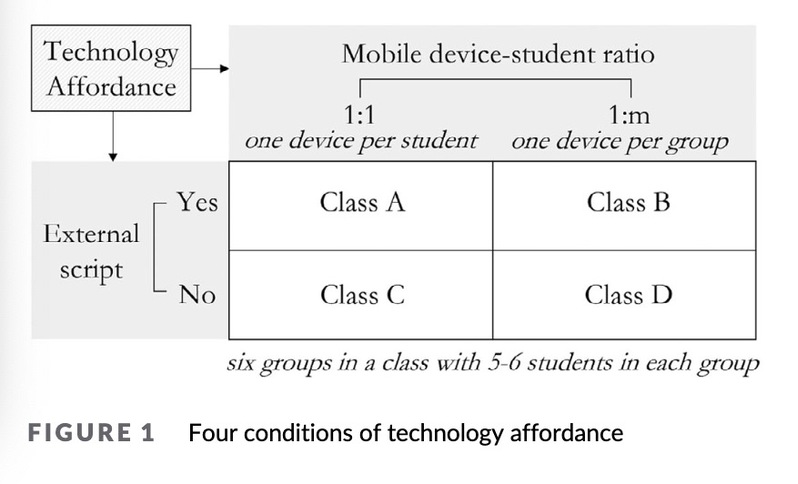
Date: 2022-04-29 Visitcount: 29
Cixiao Wang, Lingling Xu, Hui Liu
Journal of Computer Assisted Learning
2022 Volume38 Issue2
https://doi.org/10.1111/jcal.12620
Background:Virtual manipulatives (VMs) are increasingly adopted in inquiry activi-ties. However, the effects of the ratio of mobile device-based VMs to students andexternal scripts (a guiding structure for prompting group process) provision on groupinteraction has not been detailed.Objectives:This study proposed four different technology affordance conditions forcollaborative inquiry learning: 1:1 device-student ratio (one tablet per student) withexternal scripts, 1:m ratio (one tablet per group) with external scripts, 1:1 ratio with-out external scripts, and 1:m ratio without external scripts. The purpose of this studyis to identify the effect of technology affordances on group behavioural patterns dur-ing collaborative inquiry learning.Methods:The research participants were 21 fifth-grade students from 4 classes(totalling 130 students) in a public elementary school. Students' collaborativeinquiry behavioural patterns were video-recorded during three themed inquiryactivities. To identify the behavioural patterns of groups, this study developedan action-oriented coding scheme for collaborative inquiry learning emphasizingand coded student actions during cooperation. Through lag sequential analysisand dialog content analysis, the behavioural transition modes of groups wereobtained.Results:The results show that device-student ratios and external scripts affectbehavioural patterns through resource coordination, information interaction, collabo-rative atmosphere, and task awareness.Implications:In mobile device-support collaborative inquiry learning, the 1:m device-student ratio yielded more exchanges to test and apply new constructions than thatof the 1:1 ratio. External scripts were more applicable to the 1:m condition than tothe 1:1 condition.
Keywords:collaborative learning, external script, lag sequential analysis, mobile learning, virtualmanipulative


